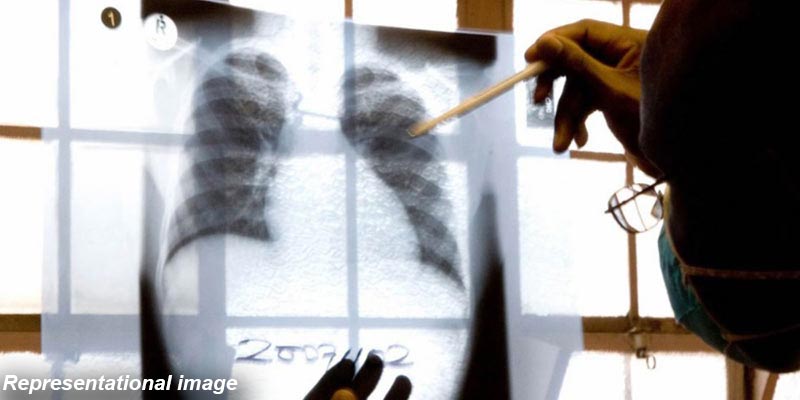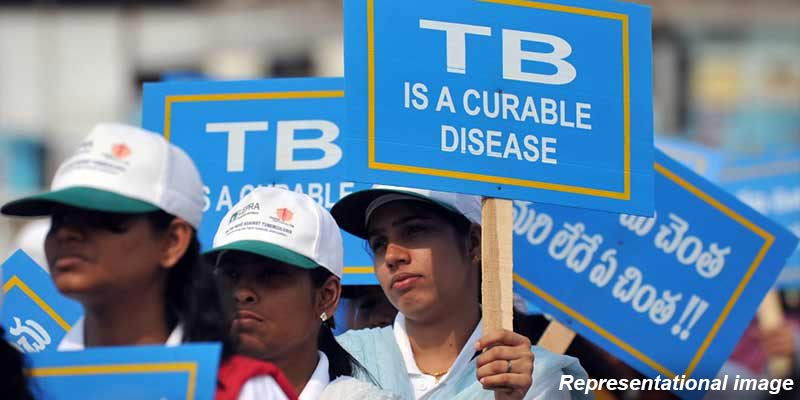- India
- Sep 07
Govt approves new treatment for multi-drug resistant TB
The Union Health Ministry has approved the introduction of the BPaLM regimen, a novel treatment for multi-drug resistant tuberculosis (MDR-TB) under its National TB Elimination Program (NTEP) as a highly effective and shorter treatment option.
What is the new treatment plan?
• This regimen includes a new anti-TB drug namely Pretomanid in combination with Bedaquiline and Linezolid (with or without Moxifloxacin).
• Pretomanid has earlier been approved and licensed for use in India by the Central Drugs Standard Control Organisation (CDSCO).
• The BPaLM regimen, which consists of four-drug combination — Bedaquiline, Pretomanid, Linezolid and Moxifloxacin — has been proven to be safe, more effective and a quicker treatment option than the previous MDR-TB treatment procedure.
• While traditional MDR-TB treatments can last up to 20 months with severe side effects, BPaLM regimen can cure the drug-resistant TB in just six months with a high treatment success rate.
• India’s 75,000 drug-resistant TB patients will now be able to avail the benefit of this shorter regimen.
• The Department of Health and Family Welfare, in consultation with the Department of Health Research ensured the validation of this new TB treatment regimen that witnessed a thorough review of evidence by in-country subject experts.
• It also got a Health Technology Assessment done through the Department of Health Research to ensure that this MDR-TB treatment option is safe and cost-effective.
Tuberculosis
• Tuberculosis is caused by bacteria (Mycobacterium tuberculosis) that most often affect the lungs. It can spread when people who are sick with TB expel bacteria into the air – for example, by coughing.
• Every year, 10 million people fall ill with TB. Despite being a preventable and curable disease, 1.5 million people die from TB each year.
• TB is the leading cause of death of people with HIV and also a major contributor to antimicrobial resistance.
• Most people who develop the disease are adults.
• Many new cases of TB are attributable to five risk factors: undernutrition, HIV infection, alcohol use disorders, smoking and diabetes.
• TB is preventable and curable. About 85 per cent of people who develop TB disease can be successfully treated with a 4/6-month drug regimen. Treatment has the added benefit of curtailing onward transmission of infection.
• Economic and financial barriers can affect access to health care for TB diagnosis and completion of TB treatment; about half of TB patients and their households face catastrophic total costs due to TB disease.
• Progress towards universal health coverage (UHC), better levels of social protection and multisectoral action on broader TB determinants are all essential to reduce the burden of TB disease.
Indian govt’s initiatives to combat TB
• The World Health Organisation’s (WHO) Global TB report 2023 has ranked India at 38th position among 215 nations with approximately 27 per cent of TB contribution in the total global TB burden.
• The government implements the National TB Elimination Programme (NTEP) under the aegis of the National Health Mission (NHM).
• The National Strategic Plan for TB Elimination (2017-25) was approved on May 8, 2017 and is being implemented in the entire country. It is a multi-pronged approach that aims to detect all TB patients with an emphasis on reaching TB patients seeking care from private providers and undiagnosed TB in high-risk populations.
• The National Tuberculosis Elimination Programme (NTEP), previously known as Revised National Tuberculosis Control Programme (RNTCP), aims to strategically reduce TB burden in India by 2025, five years ahead of the Sustainable Development Goals.
• In September 2022, President Droupadi Murmu launched Pradhan Mantri TB Mukt Bharat Abhiyan, to provide additional nutritional support to those on TB treatment, through contributions from community and organisations.
• Pradhan Mantri TB Mukt Bharat Abhiyan (PMTBMBA) was launched on September 9, 2022 for community support to TB patients with the objective to provide people with TB with additional nutritional, diagnostic and vocational support. Under the scheme, more than one lakh Ni-kshay Mitras (donors) are supporting over 11 lakh TB patients all over the country presently.
• In March 2023, Prime Minister Narendram Modi launched various initiatives, including the TB-Mukt Panchayat initiative to leverage the support of over 2.5 lakh Gram Panchayats to raise awareness about TB.
Manorama Yearbook app is now available on Google Play Store and iOS App Store


